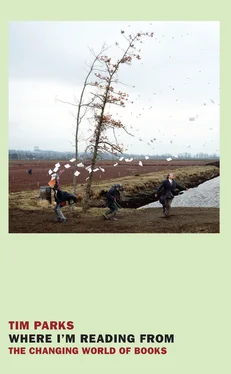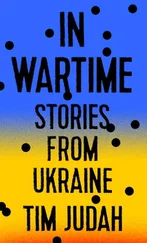Michel Butor, Nathalie Sarraute, Alain Robbe-Grillet, Thomas Bernhard, Philip Roth, John Updike, David Foster Wallace, James Kelman, Alison Kennedy, Will Self, Sandro Veronesi, and scores upon scores of others all find new ways of exasperating and savoring this mental chatter: minds crawling through mud in the dark, minds trapped in lattices of light and shade, minds dividing into many voices, minds talking to themselves in second person, minds enthralled in sexual obsession, minds inflaming themselves with every kind of intoxicant, minds searching for oblivion, but not finding it, fearing they may not find it even in death.
Not long after that Saturday-morning radio show I sat in a meditation retreat and heard a speaker expound the Buddha’s well-known reflection on the so-called “second arrow.” A student had come to him with questions about pain, meditation, suffering. The Buddha replied with a question of his own: “When someone is struck by an arrow, is it painful?” “Yes,” said the student. Then another question: “When this someone is struck by a second arrow, is it painful?” “Of course it is,” said the student. Then the Buddha said, “There is nothing you can do about the first arrow. You are bound to encounter pain. However the second arrow is your choice. You can choose to decline the second arrow.”
Sitting for ten days on a cushion, eyes closed, cross-legged, seeking to empty your mind of words, it’s all too evident how obsessively the mind seeks to construct self-narrative, how ready it is to take interest in its own pain, to congratulate itself on the fertility of its reflection. That chattersome voice will even be pleased with its progressively more elaborate analyses of how difficult it is to quiet the mind and empty it of the very reflections it is making. But alas, you cannot sit cross-legged without pain unless you learn to relax your body very deeply. And, as neuroscience has recently confirmed, when the mind churns words, the body tenses. As if in a laboratory, one is obliged to experiment with the perils and pleasures of what the Buddha called the second arrow, the mind bringing energy to its own pain.
But you can also choose not to go that way. You can decide that your mental chatter is not after all so damn interesting; the second arrow can be declined. How else would these people around you have learned to sit so still, for so long and in such serenity? Imagine Dostoevsky’s man in Notes from Underground , or Beckett’s Unnameable, or Thomas Bernhard’s narrator in The Loser at a meditation retreat, learning to be silent, learning to sit still, learning to put to rest the treadmill of reflection.
Or again, imagine if the literary folk suddenly tired of it all, realized how unhelpful it all was; if the critics and academics wearied of untangling torment for a living (I see you haven’t got any better, Beckett’s old analyst responded after the author sent him a copy of Watt ). Imagine if the publishers—let’s call them the Second Arrow Publishing Corporation—informed all their great authors, all the masters of the mercilessly talkative consciousness, that they are winding up their affairs; they have seen the light, they will no longer publish elaborations of tortured consciousness, lost love, frustrated ambition, however ingenious or witty. Imagine! All the great sufferers saved by Buddhism, declining the second arrow: quietness where there was Roth, serenity where there was McCarthy, well-being where there was David Foster Wallace.
Do we want that?
I suspect not. I suspect our destiny is to pursue our literary sickness for years to come. It is hard not to congratulate oneself on the quality of one’s unhappiness. “Every word,” Beckett told us, “is an unnecessary stain on silence,” then began:
Where now? Who now? When now? Unquestioning. I, say I. Unbelieving. Questions, hypotheses, call them that. Keep going, going on, call that going, call that on.
I WONDER HOW many people share the experience described by David Shields in Reality Hunger , of tackling some large novel, a work essentially conventional in its structure and brand of realism, that weaves together the lives of its characters over a number of years, and simply feeling that the whole exercise has become irrelevant. Shields doesn’t present his remarks as a criticism of writers—the name he mentions is Jonathan Franzen—pursuing the tradition of the long realistic novel. Rather, he suggests it is a change in himself, something he believes has been brought about by the utterly changed nature of contemporary life. He considers the variety of electronic media—the proliferation and abbreviation of all forms of messages, the circumstances created by the evermore rapid transit and greater abundance of information, the emergence of a powerful virtual world that becomes more real to us all the time—and he concludes that given this way of life, it is hard for the traditional kind of novel to hold our attention.
I share Shields’s changing reaction to traditional novels. More and more I wonder if it is possible for a novel not to give me the immediate impression of being manipulated toward goals that are predictable and unquestioned: the dilemma, the dramatic crisis, the pathos, the wise sadness, and in general a suffering made bearable, or even noble through aesthetic form, fine prose, and the conviction that one has lived through something important. But to go from that to fragmented, rapidly intercut chunks of “reality,” however powerfully they may evoke certain aspects of contemporary living, doesn’t work for me, nor do I entirely agree with Shields’ analysis, however strongly and passionately he makes his case.
First of all, it is clear that many people who are entirely at home with their iPhones and iPads, music clapped to their ears and text messages vibrating in their pockets, still very much enjoy the traditional novel—regardless of whether it offers an account of life that corresponds to theirs. Otherwise how to explain the vast numbers of readers picking up the work of a Hilary Mantel, a Richard Ford, or, on the more popular side, a Stieg Larsson or an E.L. James? If the form is losing its seduction for some, it is clearly alive and well for many. Indeed, its very distance, in most cases, from the texture of modern life, the impression it can give of shape, continuity, and hence meaning, may be its most reassuring and attractive aspect. The growing popularity of historical novels would tend to confirm this. Such works as Wolf Hall , this year’s Man Booker winner The Luminaries (both more than six hundred pages), and the prize’s “runner-up,” Jim Crace’s Harvest , or again the much-praised Traveler of the Century by Spanish novelist Andrés Neuman, all suggest in different ways that, despite its enigmas, we know more or less what a life is or should be, we can follow its trajectories, we can put the past in relation to the present.
This is exactly where my dissatisfaction with the form begins. Over recent years I have preferred the works of writers, many long dead, who seemed to share my anxiety that the traditional form was scandalously overconfident: Beckett’s novels, Thomas Bernhard’s, more recently the strange amalgamation that is Lydia Davis’s lifelong collection of short stories , if stories really is the right word for them. Even so, this kind of writing, and with it the whole postmodern adventure, seems to derive its energy by gauging its distance from the traditional novel, by expressing its disbelief and frustration with the form, and there is a limit to the pleasures, comedy, and wisdom of negative energy and deconstruction. One risks ending up like the goat in Beckett’s Watt , who, chained to a post, has wrenched the post from the ground, but has no idea where to go and is hampered by the chain still fastened round his neck and by the post that continues to clatter wherever he turns. The pathos of failing to achieve meaning replaces the more immediate pathos that clings in the traditional narrative to the characters’ meaningful lives. But Beckett’s fiction, however wonderful, is the novel as noble dead end, a heroic bivouac on the edge of a civilization in denial.
Читать дальше












